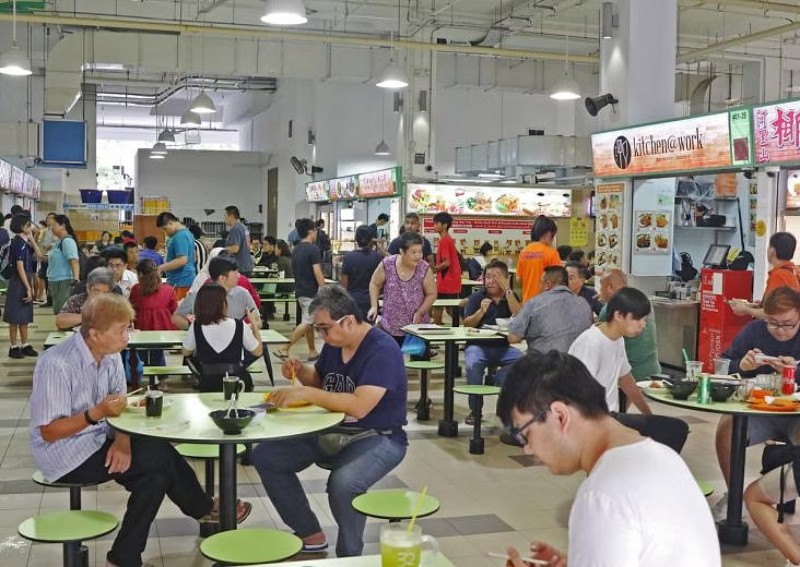Help with cost of living at top of Budget 2024 wish list for people in Singapore: AsiaOne survey


 PUBLISHED ONFebruary 14, 2024 9:31 AMByKhoo Yi-Hang
PUBLISHED ONFebruary 14, 2024 9:31 AMByKhoo Yi-HangThough still affordable, the cost of living in Singapore is taking its toll - and some are starting to feel the pinch.
Administrative worker Loh for example, shared with AsiaOne that the cost of dining out with her friends have gone up by almost 50 per cent in recent years.
"If I head out for lunch with friends three or four years ago… it's about $20," lamented the 33-year-old.
"Right now, I think it easily goes up to $30 or even $40 for the same type of food."
She added that for her, the cost of living has been rising for a really long time already, and it has been happening "even before the GST increased to eight and then nine per cent".
Another Singaporean, who only wanted to be known as Yap, told AsiaOne that her grocery expenses have gone up by 10 to 20 per cent over the past two years. Her mortgage has also gone up since she bought her flat in 2021, mostly due to rising interest rates.
With the upcoming Budget 2024, Loh hopes that the government can focus on alleviating the cost of living issues that many Singaporeans experience.
Loh isn't alone in hoping the government can help her cope with the rising cost of living.
In fact, some 22 per cent of respondents of a survey conducted by AsiaOne in December last year believe that the government's top priority for Budget 2024 should be to provide financial assistance to help people manage the cost of living.
This is among other priorities selected by 1,218 respondents, including - in order of priority - job security, affordable housing and healthcare assistance.
Notably, housing affordability was more commonly selected by those aged under 45, while those aged 55 and beyond were more likely to consider healthcare to be a prime concern for Budget 2024.
Additionally, respondents who were unemployed or self-employed felt even more so that Budget 2024 should focus on the rising cost of living.
When asked about their thoughts on the cost of living within the next six months, 77 per cent indicated concern.
Those aged 25 to 44 expressed greater levels of concern compared to other age groups.
Some 15 per cent were not concerned about the cost of living, which is a lower figure compared to the share of respondents (18 per cent) in two previous polls conducted in January 2023 and July 2022.
Among those who expressed concern about cost of living, 80 per cent felt that the rising cost of food takes the cake over other issues.
This is followed by the cost of healthcare at 68 per cent and cost of transport at 63 per cent.
While cost of living is an important matter for the government to address, Yap opined that they should "focus on more macro issues" including healthcare, education and infrastructure.
Loh however felt that cost of living is the most important issue presently.
"Healthcare is already very much taken care of, especially for the elderly," Loh said.
Although transport costs have increased, both Loh and Yap said they haven't really been affected by it.
"My friends who aspire to own cars are probably more affected by increasing COE prices and fuel costs," Yap said.
When the pressure of rising costs bear down on the people, something has got to give.
For most, the first thing that will go is the non-essentials in their lives - 71 per cent among respondents concerned with cost of living said they intend to adjust their expenditures should the cost of living increase further.
Some 46 per cent of respondents from that group also said they would seek help online, looking up life-hacks and staying in-the-know when it comes to discounts to minimise the damage to their wallets.
For Loh, the rising costs have meant that she has cut down on her gatherings with her friends, also skipping on vitamins and health checkups that she would otherwise have spent money on.
The option of pursuing further education has also become less attractive to her, making her "think twice" about entering studies again.
"I can't tell you which item I would specifically cut," Yap considered. "But I've stopped patronising Ya Kun and similar kaya toast establishments which have… disproportionately raised prices."
Some surveyed also considered simply working harder and longer - delaying retirement was the go-to plan for 42 per cent of respondents concerned with cost of living, especially among those aged 45 to 64.
So what would happen if they had a 10 per cent increase in disposable income?
While Yap, 31, said she would be content with just throwing more into her savings, Loh felt that the money could go towards those in need.
Specifically, she would use the money to buy food for the disadvantaged, and covering the cost of transporting it over to them.
Otherwise, she would spend on picking up new skills or taking classes.
Similar to Loh, respondents aged 25 to 44 said they were more likely than average to spend more on non-essential items should their disposable income increase.
Conversely, if disposable income decreases, those within her age group would be more inclined than average to search for higher-paying jobs or pick up side-hustles.
However, when it comes to managing their cost of living, both Yap and Loh agree that the government can only do so much - the responsibility also lies with the individual.
"I feel that the onus should ultimately be on us to be financially literate and responsible, but the government should also play a role in ensuring that the prices of goods and services continue to remain affordable," Yap said.
"If you as a person don't work hard… you cannot blame the government," Loh added. "We have the final say in our life and how we want it to be."
Edmund Chua, AsiaOne's head of consumer insights and analytics, said that cost of living continues to be a major and growing concern among respondents.
Although cost of food remains the top concern, healthcare costs emerged as the second most common source of worry in this poll.
This aligns with rising healthcare costs reflected in recent Consumer Price Index (CPI) changes especially for the middle and higher income households, he added.
"Our interviews reveal that regular checkups, are seen by some as discretionary spending, may be neglected due to financial strain," Chua stated.
"Relevant public communications efforts might be needed at this juncture to urge the public to reconsider this."
One way this could be achieved is through providing the public with information on where they might access affordable heath check-ups or educating the public on long term risks of allowing illness to unknowingly deteriorate, he said.
ALSO READ: Some Singaporeans are heading to Malaysia for cheaper medicine. But is it safe?
At AsiaOne, communications is both an art and a science. We conduct polls 24/7 to understand our users' perception and opinions towards social issues, as well as their consumer preferences.
Want more insights on how Singaporean's attitudes and perceptions towards social issues? Get in touch! Contact us at sales@asiaone.com to explore opportunities to co-create meaningful content.
khooyihang@asiaone.com
bhavya.rawat@asiaone.com